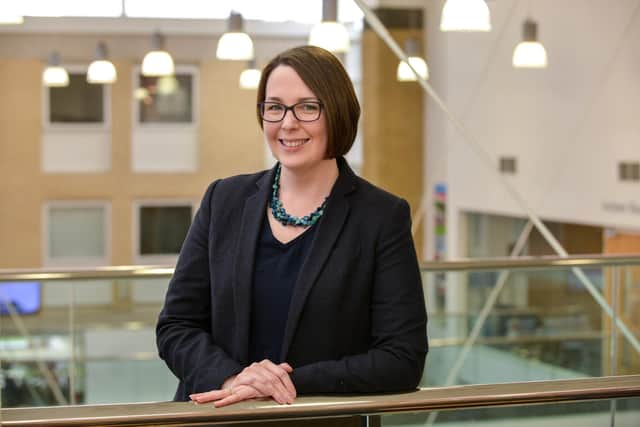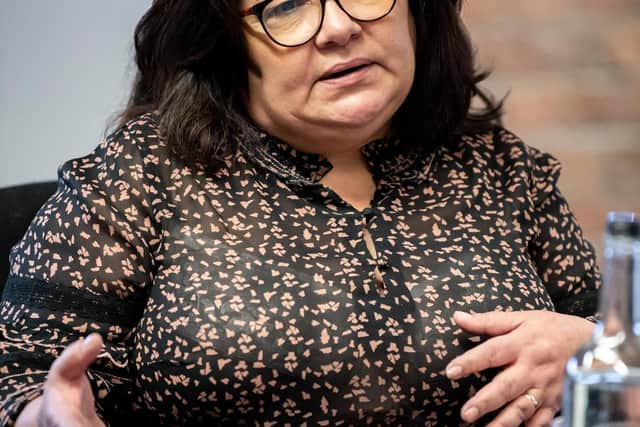Lancashire at the vanguard of the female-led eco-friendly engineering revolution combatting climate crisis
and live on Freeview channel 276
With International Women in Engineering Day having taken place in late June, Lancaster University’s Low Carbon Eco-Innovatory (LCEI) programme, which is promoting closer collaboration between academia and industry to help create more low carbon goods, services, and processes across Lancashire.
Since launching in 2015, LCEI has supported 350 businesses and saved 10,000 tonnes of greenhouse gases. Delivered by Lancaster University’s Centre for Global Eco-Innovation, it is headed up by engineer and environmental scientist Jess Davies, who works as a Professor in Sustainability at the university.
Advertisement
Hide AdAdvertisement
Hide Ad“One of the main challenges for women starting out in engineering is seeing it as a profession for them,” says Jess. “Having great female role models is incredibly important and, while there has been great progress, events like International Women in Engineering Day help celebrate these.


“We want to champion SMEs to play a leading role in addressing climate and environmental emergencies, but it’s also important that we champion the diversity of these innovators to help overcome barriers and change the traditional culture and norms,” Jess adds.
“We can help drive change by diversifying networks; we need diverse perspectives and lived experiences to form a better understanding of the many dimensions of the problem. And we’re going to need all the creativity that comes with diversity to help us find good solutions to the major environmental problems of our times.”
North West-based Autentica Parts is one of the female-led businesses to have benefitted from the programme. Allowing engineers to share designs for parts which can be 3D printed anywhere in the world, the company is the brainchild of Irma Gilbert and was developed thanks to the access to academic expertise and cutting-edge resources LCEI offered.
Advertisement
Hide AdAdvertisement
Hide Ad“As a woman at the forefront of the Fourth Industrial Revolution, I needed someone to believe in my ambition,” says Irma. “I saw an opportunity to create a marketplace where engineers could share their designs for parts and components, which could then be uploaded to a platform, licenced, and downloaded by customers anywhere in the world.”


Thanks to LCEI, Irma was able to conduct more research and take on a fully-funded intern who helped create a prototype for the platform, which now boasts customers in Europe, the Middle East, Asia, and South America. Autentica Parts now operates across services as varied as automotive, electronics, consumer goods, medicine, heavy machinery, and energy.
They have also managed to decarbonise their manufacturing supply chain, reducing customer transportation and logistics costs by 70%, delivery times from three months to 24 hours, and CO2 emissions by up to 40%. Irma now heads up a team of four and is forecasting a turnover of £6m by 2025.
“We really are indebted to the support offered by LCEI and the expertise of Lancaster University, which supercharged my ideas to create a platform transforming supply chains, reducing carbon emissions and building a sustainable future,” adds Irma.
Advertisement
Hide AdAdvertisement
Hide Ad“Irma [is a] great example to show what women can achieve in engineering,” continues Jess. “We’re thrilled to hear that the kind of access to opportunities, resources, and support we’ve offered through has helped with their development as eco-innovation leaders.”